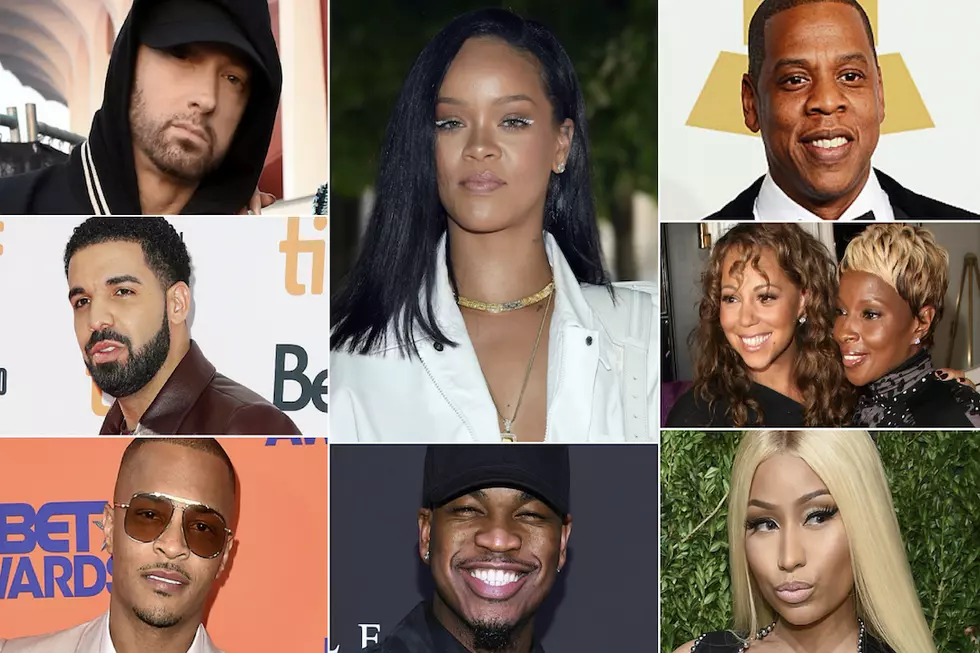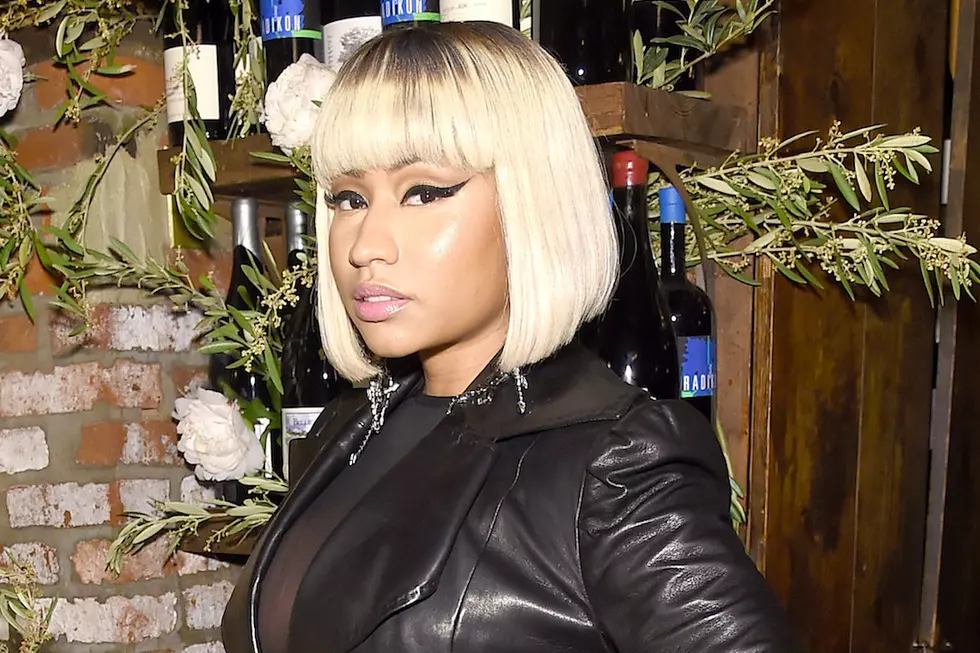
Nicki Minaj Is Right About White Rappers and the Silencing of Black Women, So Have Several Seats
Nicki Minaj drew attention on Saturday by captioning an Instagram of the iTunes rap chart with “It’s a great time to be a white rapper in America, huh?” The top five spots on the list were all held by white rappers Eminem, Post Malone, NF, G-Eazy and Lil Pump.
Reactions to Minaj's post were swift. Minaj was called a hater for calling out what was quite obvious. The backlash prompted her to clarify her statements and defend her right to speak about the culture she's not only benefitted from, but helped further define over the past decade.
"It IS a great time to be a white rapper in America," she responded on Instagram following the backlash. "I wanna sign one for my new label. U know anyone? I speak my [motherf**kin'] mind and if [you] don't like it gtfo my page d*ck rida."
And while her response was concise and pointed, I'd like to expand on why Minaj was right and doesn't owe anyone any explanation for her statements.
1. Um, it is a great time to be a white rapper
Gone are the days of white rappers being a novelty, or finding themselves in a position where they need a firm (or even positive) association with black culture to be accepted. Look no further than Post Malone, who has had chart-topping singles, in spite of his continuously questionable comments about the validity of the genre from which he greatly benefits, and his "we are the world," defensive retorts to valid questioning about his appropriation of black culture. Post Malone's problematic relationship with hip-hop and black culture has been addressed quite a bit over the past year, including in a piece published by Complex, Here's Why Post Malone Is a Problem, and a fantastic break down about Post Malone and the potential whitening of hip-hop with net neutrality, in a recent episode of TBD by Justin Hunte, called, Black Rappers Are Going Extinct.
Obviously, there's nothing wrong with diversity in any genre. Varied perspectives, voices and approaches to the music only enhances it — if it's sincere. But here's the thing: we live in a country where the systemic oppression of black art, voices and culture, has existed for centuries. Black erasure has long been an issue, and it's one that hasn't gone away.
Of course, one of the easiest genres to point to in identifying black erasure, is rock and roll. The discourse about whether or not hip-hop will endure a whitening in the same way has been around for a while now, though it feels more viable than ever in 2017, especially when you look at the charts and the acceptance of white rappers who have a shady history with hip-hop as a genre, and black culture, in particular.
Wale chimed in with a co-sign on Minaj's comments, adding that white artists of any genre enjoy immediate mainstream recognition.
"I see no lies...white artist songs are instantly pop" songs and not urban," he wrote on Instagram. "Miguel got to be 'urban' Sam Smith can be 'pop' with the same exact song. Nobody wanna say it tho because of the backlash."
Which leads to the next point...
2. Black women are too often depicted as angry, bitter and mean, which is inaccurate and also, super wack
Seriously, when are these old stereotypes going to die? It doesn't appear that it'll be any time soon, considering the backlash Minaj received for a simple statement.
As she affirmed, she's good. She's one of the most successful acts in hip-hop, and in any genre, for that matter. But when she makes a straightforward, valid point, she's hating. She's mad. She's every caricature of black women that society has heaped on us.
Minaj loudly shut the door on her haters by posting, “Whenever a black woman speaks on anything she’s labeled as mad, angry or bitter. I’m blessed and highly favored thanks to my amazing fans, but I’ll speak on whatever the f**k I want to, whenever the f**k I want to.”
As a country, we still haven't owned the reality that black women are often the moral compass for society, the laborers upon which emotional trust and resiliency is built. Look no further than the election of Doug Jones in Alabama. Point being, stop labeling black women with tired, cliched labels every time we use our voice to say something that might be uncomfortable.
In a nutshell, Nicki Minaj is right. So, deal.
More From TheBoombox


![Nicki Minaj Pays Off 37 Fans’ College Tuition, Student Loans [PHOTO]](http://townsquare.media/site/625/files/2018/06/Nicki-Minaj-Student-of-the-Game-Winners.jpg?w=980&q=75)
![Lil’ Kim Gets Amnesia and Doesn’t Know Who Nicki Minaj Is [VIDEO]](http://townsquare.media/site/625/files/2018/06/Lil-Kim-Shades-Nicki-Minaj.jpg?w=980&q=75)



![Eminem Addresses Rumors That He’s Dating Nicki Minaj [VIDEO]](http://townsquare.media/site/625/files/2018/05/Eminem-Addresses-Nicki-Minaj-Dating-Rumors.jpg?w=980&q=75)

